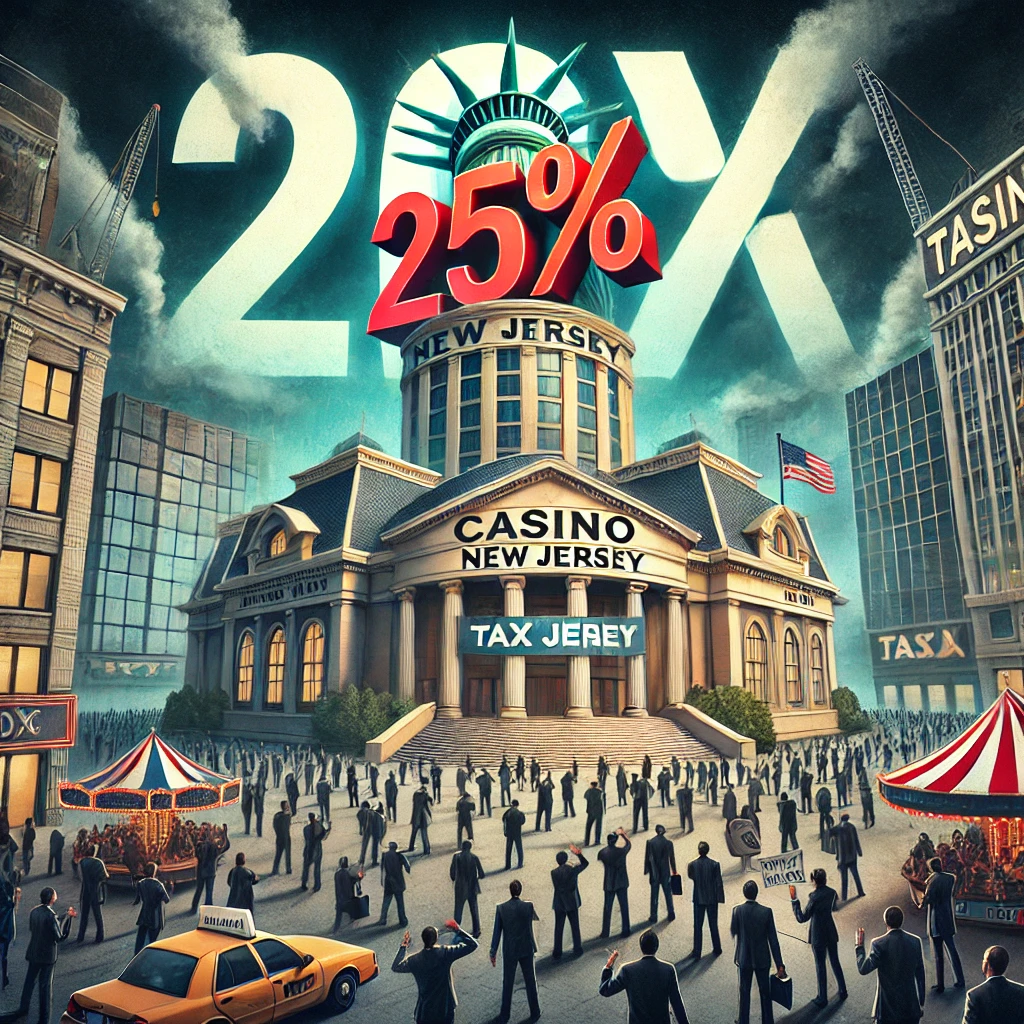
New Jersey Governor Proposes 25% Blanket Tax on Betting and Casinos: Industry Voices Strong Opposition
Governor Phil Murphy recently unveiled his new state budget proposal, which includes a significant tax hike on New Jersey’s booming gambling industry. The proposed 25% blanket tax on both online sports betting and online casino revenues marks a steep increase from the current rates of 13% and 15%. While the governor’s office estimates the measure could bolster state coffers by up to $400 million, prominent stakeholders are warning of potential damage to the Garden State’s thriving gaming sector.
Overview of the Proposed Tax Hike
New Jersey has long been celebrated as a pioneer in the regulated online gambling and sports betting industries. The success of Atlantic City’s casinos and the surge in mobile betting platforms have made the state a benchmark for others looking to legalize and regulate these activities.
However, Governor Murphy’s plan to implement a 25% blanket tax on all gambling revenue has sparked immediate controversy. Proponents believe the tax increase will channel additional funding into essential public services, such as education and infrastructure. Critics, on the other hand, argue that the heftier levy may undermine the state’s competitive edge, driving players—and companies—away from New Jersey’s regulated market.
Strong Opposition from Industry Leaders
The Sports Betting Alliance (SBA)—comprising major industry players such as BetMGM, FanDuel, FanaticsSportsbook, and DraftKings—has been quick to condemn the proposal. SBA representatives argue that higher taxes could stifle growth and discourage new investments, particularly if operators see slimmer profit margins.
Industry leaders highlight that New Jersey’s regulated gambling market has already delivered substantial economic benefits. Thousands of jobs have been created, local businesses have flourished, and significant tax revenue has flowed into government coffers. A sudden, across-the-board tax hike, they argue, risks derailing this upward trend.
In a public statement, Resorts Casino Hotel President and Casino Association of New Jersey President Mark Giannantonio warned that the proposed increase could “threaten the stability of Atlantic City’s gaming and tourism industry, as well as the industry’s workforce.”
Comparisons with Other States
New Jersey is not alone in considering larger tax takes from the gambling industry. Across the United States, a growing number of states have either proposed or implemented higher levies on wagering to bolster state budgets.
- Louisiana recently entertained a similar tax hike proposal.
- Mississippi increased its land-based casino tax from 8% to 12%.
- Ohio Governor Mike DeWine seeks to raise the state’s sports betting tax again, potentially elevating it from 20% to 40%.
- Maryland, Pennsylvania, and Michigan have all mulled or introduced heightened gambling taxes in recent legislative sessions.
- Massachusetts is exploring the addition of iGaming with higher tax rates on potential online casinos and sports betting operations.
While boosting state revenue is often the immediate goal, critics nationwide point out that steeper taxes can ultimately push operators and consumers toward less regulated or even offshore markets. The legal industry’s advantage—strong consumer protections and robust state oversight—could be diminished if players perceive that higher tax rates result in inferior odds or bonuses compared to unregulated platforms.
Potential Impact on Competitiveness
Industry experts warn that an across-the-board tax hike could:
Hurt Innovation and Investment
Higher operational costs might discourage existing operators from investing in product innovation, leading to fewer competitive offerings for consumers.Reduce Employment and Wages
Profit margins for gambling operators could shrink, triggering cost-cutting measures such as fewer hires, wage stagnation, or even layoffs.Encourage Offshore Gambling
A less favorable tax environment could motivate both operators and high-value players to seek more competitive (and often unregulated) offshore or gray-market betting platforms.Destabilize Atlantic City’s Recovery
Atlantic City, which has worked hard to reestablish itself as a premier gaming and tourism destination, may face setbacks if casinos struggle under heavier tax burdens.
Outlook for the New Jersey Gambling Industry
It remains to be seen how Governor Murphy’s proposal will fare in the state legislature and whether stakeholder concerns will be sufficiently addressed. The debate underscores the delicate balance between public revenue generation and maintaining a healthy, competitive gaming market.
In the meantime, industry leaders are sounding the alarm that even a well-intentioned move to boost state funds could jeopardize New Jersey’s status as a national leader in regulated gambling. If approved, this sweeping 25% tax rate could reshape the state’s online sports betting and casino landscape for years to come.
Final Thoughts
As discussions unfold, New Jersey operators, lawmakers, and regulators face critical choices about the future of the state’s gambling industry. Striking a balance between fiscal objectives and sustaining a robust market will be paramount. As more states follow suit and reconsider their own gambling tax frameworks, the Garden State’s experience may become a bellwether for the broader U.S. gaming sector.

